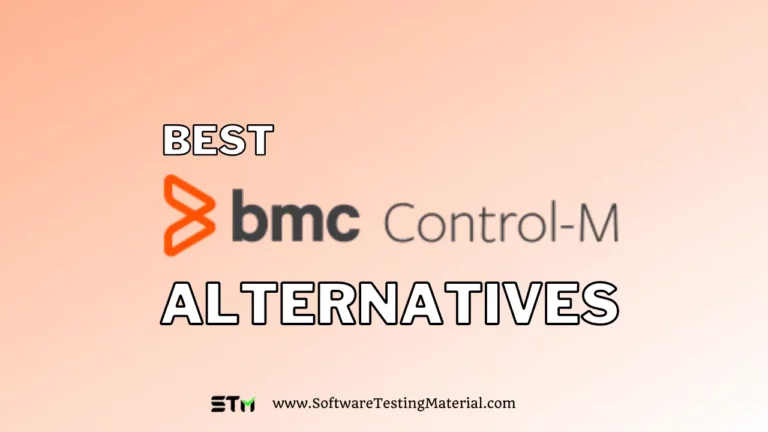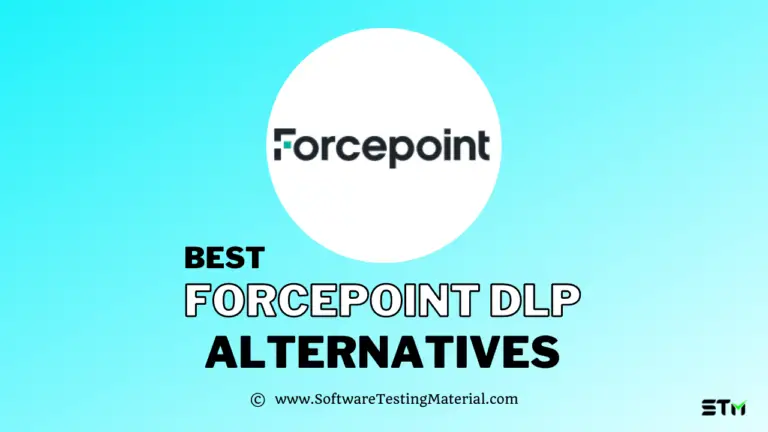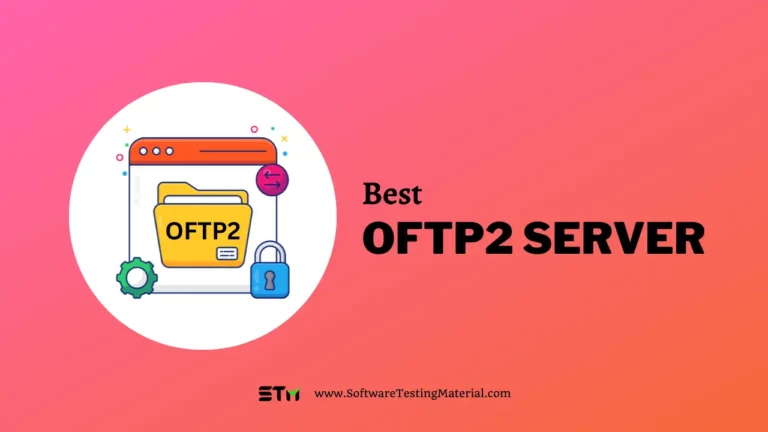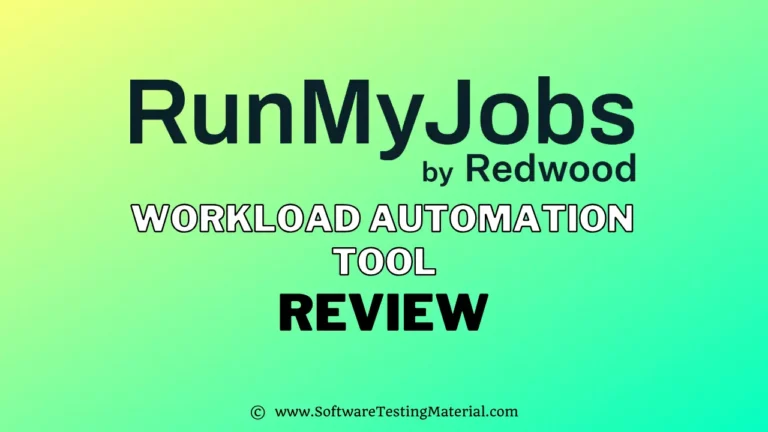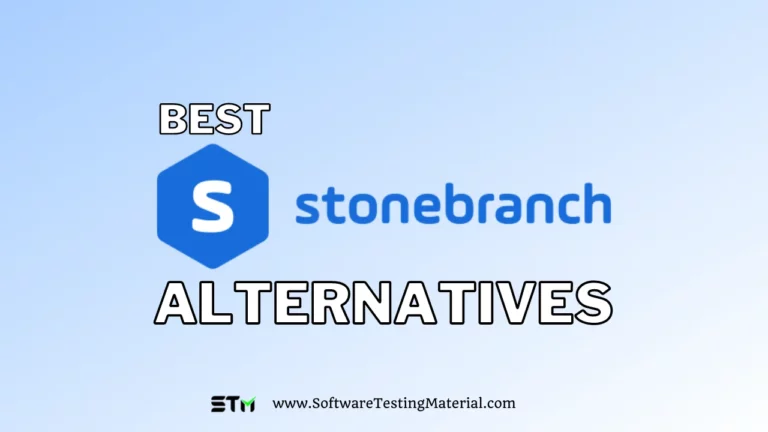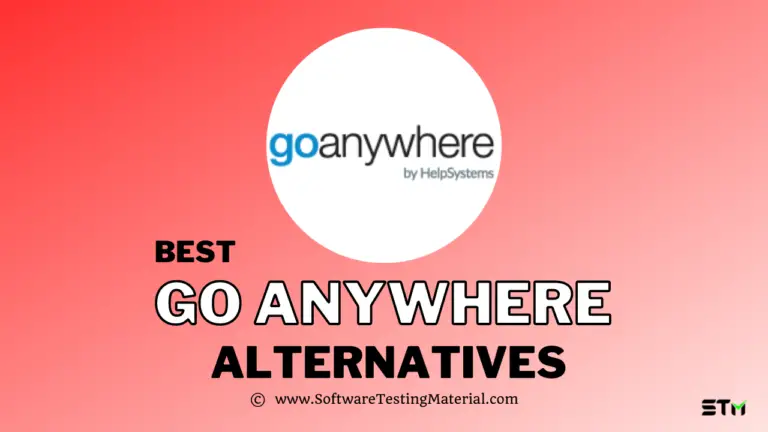19 Best Agile Project Management Tools In 2024
Are you looking for the Best Agile Project Management Tools? Check out our list to find out!
No matter what type of project you’re working on, it’s important to have the right tools in order to make sure it’s a success.
In the world of agile project management, there are a number of great tools available to help you manage your team and your work.
In this post, we’ll take a look at some of the best options out there. Whether you’re just starting out with agile or you’re looking for an upgrade, these tools will help you get the most out of your projects.
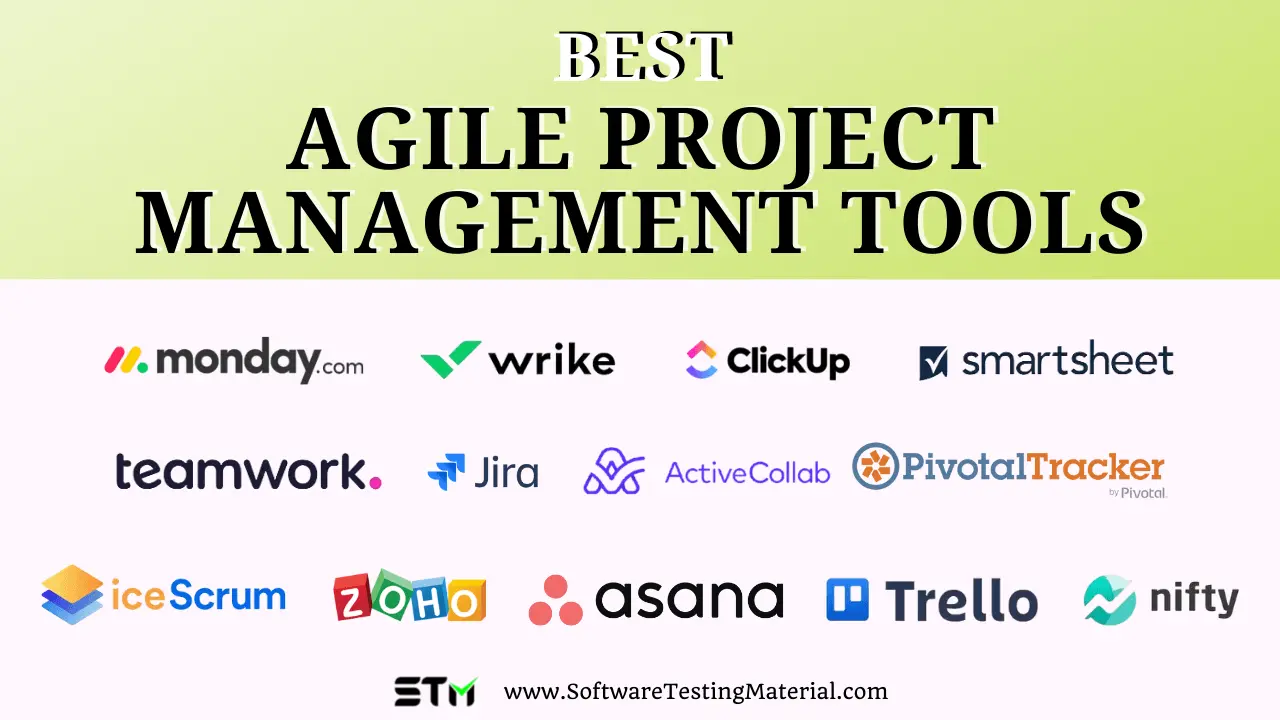
What Are Project Management Tools?
A project management tool is used to plan, schedule, allocate resources, and manage projects. It is used by project managers (PMs), stakeholders, and users to manage costs, budgeting, documentation, and quality management. It can also be used to collaborate and communicate with project stakeholders.
What is Agile Project Management?
Agile PM is an iterative approach to software development projects. It ensures rapid feedback and responsive changes at every stage of a sprint and product cycle.
This allows project teams and managers to use agile project management methods to work together quickly and efficiently within the project’s timeframe and budget.
Why Use Agile Methodology?
Many organizations are adopting agile methodologies to improve team performance, customer satisfaction, and project flexibility. Agile-based organizations can better adapt to market changes and complete more projects.
- Communication. Communication is key to ensuring that the process runs smoothly.
- Feedback. The delivery phase will not be required for the teams. They can monitor the speed of development and track it regularly.
- Trust. Agile teams can understand the goals and create paths to reach them.
- Control. Agile development allows project control because both parties can see each stage of the project.
Different Types Of Agile Management
#1. Scrum
Scrum is the most widely used Agile development framework which has taken an iterative approach concentrating on key features and objectives. Scrum’s flexibility and simplicity make it an excellent tool for implementing Agile development.
#2. Kanban
Kanban was developed by Toyota to improve factory productivity. This allows for rapid code production and gives teams a clear visual representation of their progress and transparency. You can move it through the stages to find roadblocks.
#3. Extreme Programming (XP)
Extreme programming uses discipline to improve quality and simplicity of software. It delivers consistently high-quality software. XP allows the team to collaborate with software of high quality and work closely with other teams in order to plan, estimate and deliver user stories with the highest priority.
#4. Adaptive Project Framework
Because of the ever-changing requirements in many IT projects, teams have started using Adaptive Project Framework or APF. APF can adapt to changing conditions. Stakeholders can also use this approach to change the scope of a project at any stage. This allows them to maximize their business value.
Advantages of Agile for Project Management
#1. Improved productivity
To keep projects moving forward, agile teams need to be able to access all information about a project at any time. Project management software increases productivity by centralizing all information regarding a project, including changes to tasks and feedback from stakeholders.
#2. Easier feedback gathering
Gathering feedback from stakeholders at the end of each stage is a critical component of any agile project. This process can vary depending on how many stakeholders are involved. Many agile project management tools can be integrated with other tools in your tech stack, including those that you use to gather feedback. All of your stakeholder feedback can be saved in the same location as other project data.
#3. Enhance team collaboration
PM tools allow for efficient team collaboration. They include tools like tagging and commenting as well as instant chat.
#4. Improved project visibility
Many agile project management tools provide visibility features like dashboards and Kanban boards that allow you to visualize your current projects in real-time. Any sprint can be viewed at any moment. Agile PM software allows you to use hybrid agile methods such as Scrumban. This is a combination of Scrum and Kanban. These tools are flexible enough to adapt to your workflows.
What Criteria To Look For To Find The Best Agile Project Management Software?
There are hundreds of project management tools available. Some tools were designed with agile in mind. Others are more general and include a few agile-specific features.
#1. Requirements for Agile Framework
You must first consider the agile framework that you are currently using or plan to use. Scrum and Kanban are the most popular frameworks, but there are other frameworks, such as Extreme Programming (XP). Software should be compatible with your chosen framework. You will likely need burndown charts to use Scrum.
You should also consider other features such as time tracking, resource planning, team collaboration, and team collaboration tools. This is a great place to get involved with your team or those who will be using the tool every day. Get feedback from all stakeholders to identify the essential features of your company.
#2. Budget
There are many agile project management tools available at different price points. Take into account your budget and pay attention to the monthly costs of subscription-based tools.
#3. Current tech stack
There are likely many other tools in your company besides project management software. It is important to ensure that tools like your CRM or engineering software work seamlessly with your chosen project management solution.
Why Do Teams Need Agile Project Management Tools?
Agile tools enable teams to work together and share updates at various stages. This allows for a flexible process that can adapt to changing events even in non-IT sectors.
Agile allows teams to be more flexible and ready to change direction or focus quickly. Software companies and marketing firms know that project stakeholders can change from week to week. Agile allows teams to evaluate their work and adjust in specific increments. This ensures that the team’s focus changes as the client landscape and work change.
According to Goremotely, 71% of companies use Agile approaches, and Agile adoption has helped 98% of companies.
List of Best Agile Project Management Tools
#1. Monday.com
Best for big teams or anyone that needs to manage complex workflows.

Monday.com is a top-rated agile project management tool. This software is easy to use and suitable for small or large teams. It provides several agile-specific PM tools like real-time reporting, Gantt charts, sprint planning, and bug tracking. File sharing, task assignments, priority tasks, visual boards, and other features will make it easy to see who is doing what at a glance.
Features:
- This tool allows you to drag and drop custom reports, create a centralized workspace, chart, time tracking and set up custom reports.
- Plan sprints, create user stories, assign users and make decisions.
- Integrates seamlessly with Outlook, Microsoft Teams, and Dropbox.
- It also offers pre-built templates to help with Marketing, Sales, CRM, Software Development, and HR.
Pros:
- It offers excellent collaboration features.
- Customer support is available 24/7 with a response time of approximately 10 minutes.
- Quickly deploy in minutes using hundreds of customizable templates.
Cons:
- Increasing the number of users costs you extra money.
Pricing:
- Individual: $0 free forever – Up to 2 seats
- Basic: $9 seat/month – Total $27 / month – Billed annually
- Standard: $12 seat/month – Total $36 / month – Billed annually
- Pro: $19 seat/month – Total $57 / month – Billed annually
- Enterprise: Custom quote – You need to contact their sales
#2. Wrike
Best for small agile teams.

Wrike is a cloud-based task and project management tool. This tool helps you set priorities and align your team so they can work faster and more efficiently. Wrike’s activity stream dashboard lets you keep your Agile team on the right track. It allows you to see who is working on what. Its issue tracking can help agile development teams stay on top of bugs.
Features:
- With its intuitive interface, you can easily switch between Kanban boards or interactive drag-and-drop Gantt charts.
- Get real-time reports and statuses for every kind of team project.
- Integrates seamlessly with Salesforce, Tableau, Microsoft Teams, MediaValets, Github, JIRA, SAML, and Slack.
- Pre-built templates are available for marketing, creative, agile, operations, IT & engineering, project management, and professional services.
Pros:
- Drag-and-Drop customizable interface
- Advanced reporting and analytics
- There are tons of pre-built templates available for project creation
Cons:
- It can be overwhelming for new users.
- Limited-Free Version
Pricing:
- Free
- Professional: $9.80/month per member
- Business: $24.80/month per member
- Enterprise: Contact for a custom quote
#3. Clickup
Best for teams of all sizes and industries.
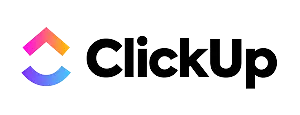
ClickUp is the ultimate productivity platform for engineers and product teams. It allows them to plan, organize and collaborate using tasks, chat, chat, goals and whiteboards. ClickUp is a powerful Agile project management tool that’s known for its intuitive user interface and a rich array of customizable features. This allows you to improve efficiency in all areas, including managing workflows, bug releases, wikis, and releases.
Features:
- View your work in ClickUp with more than 15 views, including a Gantt view, a List view, and a Board view that looks like Kanban.
- Integrations with Slack, G Suite, Dropbox, and many other tools through Zapier.
- You can create custom dashboards or use 6 pre-built report types to support team reporting.
- It has many additional features, such as recurring checklists and agile board views, sprint management, templates, etc.
Pros:
- Drag-and-drop functionality is available.
- Search facility, sorting, and advanced filters are available.
- This tool can be used for managing multiple projects.
Cons:
- Reporting capabilities could be better.
- The time tracking feature needs improvement.
Pricing:
- Free
- Unlimited: $5/month per member
- Business: $9/month per member
- Enterprise: Contact for a custom quote
#4. Smartsheet
Best for businesses managing multiple projects with many moving parts.

Smartsheet is an industry-specific project management platform that can be adapted to any industry. It allows teams to manage any project, no matter how complex. It offers an entirely customizable user interface. It is an ideal choice for agile teams that are constantly changing their needs.
Features:
- It provides tools that allow you to monitor the progress of your task as it evolves from conception to completion.
- Provide security, user management, and single sign-on capabilities to teams.
- Smartsheet allows you to automate actions by using simple rules.
- It can integrate with Google and Microsoft apps, Jira, Box, and Tableau.
Pros:
- Automates workflows across spreadsheets.
- Supports cross-department data in hybrid spreadsheets.
- Pre-built automation projects and ready-to-use templates.
Cons:
- A steep learning curve.
- Premium support can only be obtained by customers who have higher-tier plans.
#5. Teamwork
Best for creative teams, project managers, marketing departments, and professionals.

Teamwork is an easy-to-use project management tool to manage client work. It is also ideal for agile project management. It allows flexibility with visual boards, task lists and Gantt charts. You can organize your workflows however you like. It’s a complete solution to managing projects.
Features:
- Teamwork provides many options for visual representations like list views, board views, project portfolios, etc.
- It’s invoicing tab can be used for billing clients and calculating billable hours to generate invoices.
- It provides project management status like Completed, active, and late.
- It can integrate with MS Teams, Google Drive, Dropbox, HubSpot, and Slack.
Pros:
- Teamwork offers real-time collaboration features.
- Great customization options.
- Easy and simple to use.
- It provides robust reporting capabilities.
Cons:
- Unable to manage complex projects.
- Not many integrations options.
Pricing:
- Free
- Deliver: $9.99 user / month
- Grow: $17.99 user / month
- Scale: Contact for a quote
#6. ProofHub
Best for teams of all sizes to manage all their work in one place.

ProofHub is a scalable and intuitive project management and team collaboration tool that is designed to help businesses and teams eliminate unorganized work processes, communication loopholes, missed deadlines, and delayed projects. This powerful tool has a simple learning curve, which makes it easy even for less tech-savvy users to plan, manage, and execute projects while seamlessly collaborating with other
stakeholders. You get the flexibility of creating custom workflows and streamline workflows to fit your work structure.
Features:
- Track and manage your projects with ease by effortlessly switching between Board view, Table view, Gantt view and Calendar view.
- Assign tasks and set deadlines to bring clarity to job roles through Task management.
- Minimize time wastage, record time spent on tasks manually or using a timer with Time tracking.
- Customize workflows with as many stages you want and get notified each time tasks progress.
Pros:
- A suite of powerful features in one place serves as an all-in-one platform that eliminates the need to use different tools for work management.
- Helps project teams stay on top of deadlines and ensure nothing important is missed with Scheduling calendar, Automatic reminders, and Recurring tasks.
- Enhances team collaboration with smooth communication and easy access on any device.
Cons:
- Not suitable for individual users.
- Notifications management can be better.
Pricing:
- 14-day free trial
- Essential: $45 per month when billed annually, unlimited users are allowed
- Ultimate Control: $89 per month when billed annually, unlimited users are allowed
#7. JIRA
Best for development teams.
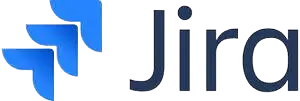
JIRA is an Agile project management tool used for bug tracking, issue tracking, reporting, release details, etc. The key features of Jira are the ability to capture, assign as well as set priorities for work. It gives teams visibility into long-term goals and real-time release information.
Features:
- Plan sprints, create user stories as well as distribute tasks for software development teams.
- Prioritize the team’s task in context with full visibility for everyone.
- Get valuable insight into your agile process with extensive reporting functionality
- Integrates seamlessly with Figma, Miro, Power BI Zephyr, Zephyr GitLab, Ketryx, and draw.io.
Pros:
- Track time to monitor effort and tasks.
- It allows you to create customized workflows that fit your company’s work culture.
- Solid bug-tracking tool for issue management.
- Built for the agile approach, specifically Scrum.
Cons:
- Provide limited collaboration features.
- Jira may seem overwhelming to beginners.
Pricing:
- Free
- Standard: $7.75 Per user/month
- Premium: $15.25 Per user/month
- Enterprise: Contact them for a quote
#8. ActiveCollab
Best for collaborating with your team members.

ActiveCollab is a project management tool that allows you to have complete control over your projects. It provides a central platform for all communication (comments and discussions, responses, in-app chat), projects as well as tasks, and files.
Features:
- It allows users to organize their work into tasks and subtasks, establish priorities, and collaborate with clients in real-time.
- Task dependencies can be used with automatic rescheduling to ensure you always have an overview of how your projects are progressing.
- ActiveCollab offers an integrated Stopwatch, which can be used to set off on a particular task or project.
Pros:
- It is visually easy to identify which projects and tasks should be prioritized.
- Less expensive than other tools.
Cons:
- No integration with Git.
Pricing:
- Plus: $9.5 for 3 members/month
- Pro: $8/member/month
- Pro+Get: $11.75/member/month
#9. Pivotal Tracker
Best for mobile and web developers.

Pivotal Tracker is another great agile project management tool that is easy to use and brings focus to software development teams. It helps your team develop and keep better track of them from start to finish.
Features:
- Tracker’s built-in charts will help you keep an eye on your project, including historical velocity, release burndown, and iteration burn-up.
- An analytical representation of team health using project trends, burnup and cumulative flow reports feat, cycle times report, etc.
- Integrates seamlessly with Jenkins, Slack and GitHub.
- Pre-built templates are available for custom story descriptions.
Pros:
- Allows real-time collaboration, so you can react and see all scrum project changes.
- Great customer service support
- Clear lines of communication
Cons:
- Steep learning curve
- No automated task flow
Pricing:
- Free
- Startup: $10/monthly
- Standard: $6.50/collaborator/month
- Enterprise: Custom quote
#10. Icescrum
Best for visual management.
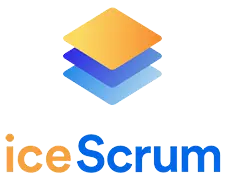
Icescrum is a project management tool that allows teams to collaborate in virtual workspaces. It can be used to manage portfolios or projects using Agile & Scrum methods. The key features include bug tracking, task creation and management, reporting, and GDPR compliance review.
Features:
- The platform includes a role management module that allows administrators to assign roles to teams like ScrumMasters, Product Owners (PO), StakeHolders(SH) and many others.
- Allows integration with many applications, including Box, Bugzilla, and Discord.
- It offers Continuous integration (CI) functionality that development teams can use to collect build information from the CI server and track any changes across tasks.
Pros:
- Great customer support team
- Easy to use and setup
Cons:
- Have bugs
Pricing:
- Free
- Small Team: 8.90€/month
- Teams: 39.90€/month
- Business: 349.00€/month
#11. Digital.ai Agility (formerly VersionOne)
Best for development teams of all sizes.

VersionOne is an agile management tool that adapts quickly to any agile software design methodology. It allows you to track and plan all your stories, defects, and tasks. You can collaborate with multiple teams and projects simultaneously by easily accessing the information.
Features:
- VersionOne includes “Conversations,” which allow status sharing, questions, and discussion forums.
- It allows customers to voice their opinions through automated data submissions and voting.
- The TeamRoom feature allows for interactive Storyboards or Taskboards to facilitate team collaboration.
- It offers more than 50 pre-packaged agile report templates, including basic burndowns and velocity charts.
Pros:
- Great integration systems
- It offers many means of communication.
- Its user interface is clean, easy to use, and powerful.
Cons:
- Inconsistent customer service.
#12. Taiga
Best for small developers, designers, and project managers.
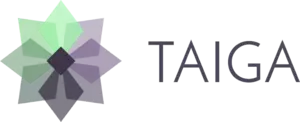
Taiga is an open-source project management tool for multi-functional agile teams. Whether your team uses Scrum, Kanban, or Scrumban or wants to track issues, Taiga is an ideal tool. It is also available in more than 30 languages.
Features:
- Its project timeline and projects dashboard provides an overview of activities.
- Zoom function for Sprint and Kanban boards allows you to quickly move from overview view to detail view, and back. The tool is available in more than 30 languages.
- To track progress, divide the project development using Taiga’s Kanban methodology. Tasks can be moved from one stage to the next.
- Integrations with Slack and Hipchat, GitHub, Gitlab and Mattermost are already configured.
Pros:
- Manage projects from Trello, Jira, Github, and Asana via importers.
- Easily create cards, track progress, and more for your team.
- Follow the real-time progress of your team.
Cons:
- Lack features for more complex projects.
- UI can sometimes gets distorted on some resolutions.
Pricing:
- Basic: Free
- Premium: $5/user/month, billed annually
#13. Zoho Projects
Best for multiple project visualizations.
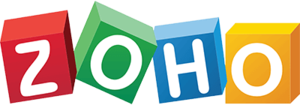
Zoho Projects is an online project management tool that provides a broad range of solutions to everyday issues in agile project management. You can download the Zoho app for invoicing, people management, analytics as well as CRM.
Features:
- Its forum allows team members to interact online even though they live in different locations.
- It can be used to manage time, timesheets, and invoicing.
- It can provide task reports, timesheets, issue reports, and budget forecasting.
- Seamlessly integrates Zoho Cliq and Zoho Meeting, and Microsoft Teams, Jenkins, Zapier, etc.
Pros:
- It supports knowledge-sharing among team members.
- Robust communication features
- Increase productivity through its tools such as Global Timers, timesheets, and resource utilization charts.
Cons:
- Task search feature needs improvement.
- Poor dashboard functionality
- Steep learning curve
Pricing:
- Free
- Premium: ₹350/user/month
- Enterprise: ₹700/user/month
#14. Asana
Best for teams using the Kanban framework.

Asana is the cloud-based task and project management tool that is best for organizing and tracking tasks’ progress. It provides everything your team needs, from timelines to boards. Asana tracks iterations, launches, as well as project and sprint plans.
Features:
- To track the progress of your initiatives, use project Portfolios to see a complete picture of how you are tracking toward your goals.
- Automate your processes to streamline teams and ensure that critical steps are not missed.
- Real-time reporting allows you to track the progress of your project in just minutes.
Pros:
- Simple to use interface
- Automate your workflow with Butler
- Offers many integrations like Okta, Salesforce, Tableau, Slack, MuleSoft, Jira BetterCloud, Zapier, etc.
Cons:
- No time tracking feature.
Pricing:
- Basic: $0
- Premium: $10.99/user/month
- Business: $24.99/user/month
#15. Trello
Best for teams of any size.

Trello is a cloud-based visual collaboration tool that allows organizations of all sizes to plan and manage projects. It allows users to define requirements, projects, and workflows in order to ensure that they are completed in a sequential and planned manner. It offers a Kanban board view, which makes it easy for you to manage your Agile team.
Features:
- It allows administrators to delegate tasks, define workflows, and set deadlines.
- You can add due dates to your cards and set reminders. You can easily view due dates on your cards.
- Facilitate team communication by adding description boxes, attachments, and comment threads on cards.
- Integrate seamlessly with Slack, Dropbox, Outlook, Gmail, Salesforce, InVision, Jira, etc.
Pros:
- It has a simple and intuitive interface.
- Power-up calendar makes prioritizing tasks easy.
- Use pre-built templates to create boards, lists, or cards.
Cons:
- Mobile platforms are not supported.
- No project bar chart (Gantt).
Pricing:
- Free
- Standard: $5 Per user/month
- Premium: $10 Per user/month
- Enterprise: $17.50 Per user/month
#16. Axosoft
Best for Scrum, bug tracking, and help desk.

Axosoft is an agile PM software that uses the Scrum framework. It allows development teams to plan sprints and visualize progress. Axosoft provides all the information needed to create each product’s backlog. It also gives an overview of who is responsible for each task and how they are progressing.
Features:
- It includes a built-in helpdesk and an email ticketing tool that can be used to assist with development processes.
- It has an intuitive wiki builder that allows teams to create wiki pages for test cases or other related documentation.
- Allows users to monitor the progress of the software and ensures its timely release.
Pros:
- Great data visualization features
- Highly customizable and well-organized workflows.
Cons:
- The learning curve is steep.
- The search function is not intuitive.
Pricing:
- 5 Members: $105/mo
#17. Kanbanize
Best for scaling enterprises.

Kanbanize is a Kanban-style agile PM tool that allows users to visualize and track projects and optimize workflow efficiency. It offers visibility across all teams, connects strategy with execution as well as helps teams deliver faster.
Features:
- You can create user accounts, assign permissions to certain employees, etc. You can create tasks, manage workflows, and view reports.
- Management workspace allows companies to have high-level transparency across their entire organization and scale Kanban.
- Kanbanize Analytics Module includes Cumulative Flow Diagram, Monte Carlo Simulations to Forecast, Cycle Time and Throughput histograms, Aging Work in Progress, Cycle Time Scatterplot, etc.
Pros:
- Easy to implement and adapt.
- Excellent visualization capabilities and analytics.
- Good customer support
Cons:
- Steep learning curve
Pricing:
- 15 users: $179/month
#18. Nifty
Best for uniting teams, goals, and actions in one place.

Nifty is a remote collaboration platform that allows you to manage your projects, goals, and communications. This tool enables teams to track milestones, tasks, and docs. The dashboard can be customized to suit any workflow. It will help you prioritize insights and reduce time searching.
Features:
- Get a bird’s eye view of all projects and team members for resource management.
- The drag-and-drop interface allows you to upload and share files with others.
- With tools for sharing, commenting, versioning and sharing, organize documents, including project notes and business requirements.
- Project managers can define goal-oriented sprints as milestones in order to organize project objectives with a start and finish dates.
Pros:
- Unlimited guest accounts.
- Easy to use with an intuitive UI.
Cons:
- Limited free plan.
- Limited direct integrations.
Pricing:
- Free
- Starter: $39 per month, billed annually
- Pro: $79 per month, billed annually
- Business: $124 per month, billed annually
- Unlimited: $399 per month, billed annually
#19. SpiraTeam
Best for IT professionals and project managers who want to analyze and execute projects.
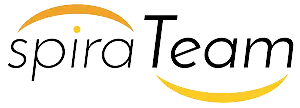
SpiraTeam is an application lifecycle management solution that can manage all your requirements, tests, releases, issues, and tasks from one platform. It is specifically designed to support agile methodologies like Scrum, DSDM, Kanban, and XP.
Features:
- Fully integrated web-hosted document management software.
- Audit the history of all changes made to the system.
- Web-based reports and graphs in MS-Office or HTML formats.
- Developers can be assigned requirements based on task estimates.
- Track bugs, enhancements, and other issues.
Pros:
- Clean and powerful AJAX web user interface.
- Offers built-in screenshot capture capability.
Cons:
- Cannot quickly move artifacts from one project to another.
Pricing:
- SpiraTest: $3,445.09/year for 10 concurrent users
- SpiraTeam: $4,352.29/year for 20 concurrent users
- SpiraPlan: $5,702.29/year for 10 concurrent users
#20. Freshservice
Best for IT project management.

Freshservice is a project management software that allows you to manage all aspects of a project, from planning to completion. It is designed using ITIL best practices to help IT companies to focus on exceptional service delivery and customer satisfaction.
Features:
- You can organize your projects using task management features.
- Isolate problems, link them to current or past incidents, perform root cause analyses with Freshservice’s timeline of events, and minimize disruptions to the business.
- It allows you to share context between teams and brainstorm ideas.
Pros:
- Cloud-based and ITIL Ready out of the box software.
- Flexible Pricing Plans for all kinds of organizations.
- Offers built-in asset management capabilities to manage all kinds of digital assets.
Cons:
- Nofeature for customization.
- Limited integration capabilities.
Pricing:
- Starter: ₹999/agent/month, billed annually
- Growth: ₹2,499/agent/month, billed annually
- Pro: ₹3,999/agent/month, billed annually
- Enterprise: ₹4,999/agent/month, billed annually
Conclusion
Agile project management tools help people manage projects using the agile methodology. This methodology has many benefits, including improved productivity, easier feedback gathering, enhanced team collaboration, and improved project visibility.
There are many factors to consider when choosing an agile project management tool, such as requirements for the agile framework, budget, and current tech stack.
Some of the best agile project management tools on the market include Monday.com, Wrike, Clickup, Smartsheet, and Teamwork.
Related posts:
- Best Project Management Tools
- Best Agile Project Management Tools
- Best Marketing Project Management Software
- Best Construction Project Management Software
- Best Real Estate CRM Software
- Best Sales CRM Software
- Best Task Management Software
- Best WorkOS Vendors

